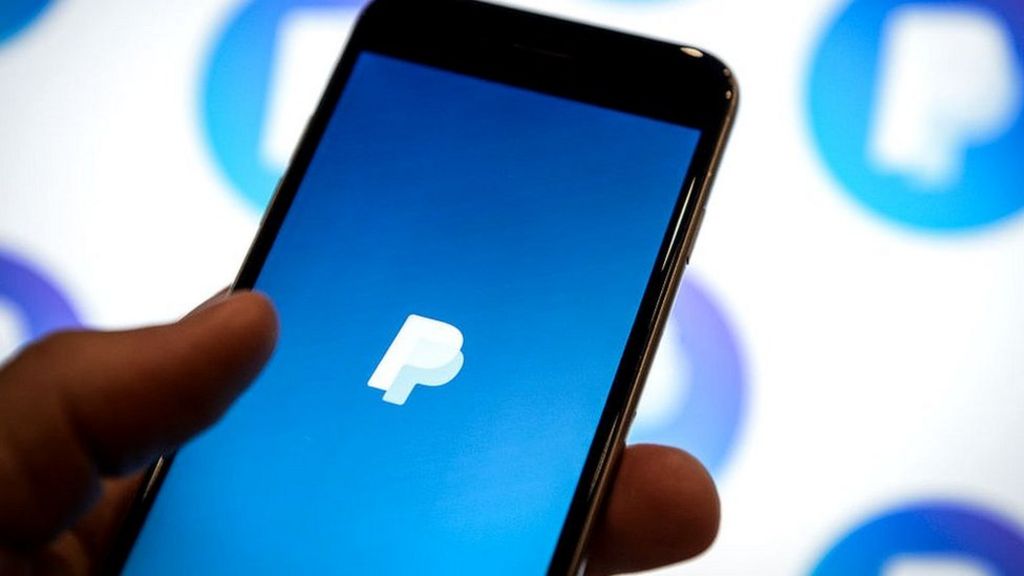SEC Drops Probe Into PayPal’s Stablecoin, Clearing Path for Crypto Expansion
01.05.2025 8:00 2 min. read Alexander Stefanov
Regulatory clouds have cleared for PayPal’s stablecoin, PYUSD, as the SEC has officially ended its investigation without pursuing any enforcement.
The update, quietly disclosed in the company’s Q1 2025 filing, marks a significant moment for PayPal’s expanding crypto ambitions.
PYUSD, launched in partnership with Paxos in mid-2023, had drawn attention from U.S. regulators soon after its debut. While the reasons behind the SEC’s inquiry were never made public, PayPal confirmed that the agency has wrapped up its review and won’t be taking further action. With that hurdle removed, the fintech firm may now move more freely in its push to integrate blockchain-based payments into everyday use.
PayPal has made steady progress in building out its crypto offerings, including allowing users to buy and sell digital assets like Bitcoin and Ethereum. But its stablecoin initiative remains central to its long-term vision. PYUSD is pegged to the U.S. dollar, supported by reserves and short-term Treasuries, and is positioned as a tool for fast, low-cost payments.
Despite limited adoption so far, the company is promoting the token for peer-to-peer transfers and merchant checkouts. Executives view stablecoins as a key part of the future financial infrastructure, with plans to expand integration across PayPal’s suite of services. Coinbase has also joined the effort by removing fees for PYUSD transactions, signaling growing momentum for the token’s role in mainstream digital payments.
PayPal’s earnings for the first quarter showed modest growth, with revenues reaching $7.79 billion. Though the report didn’t detail PYUSD-specific usage, it did note the adoption of updated accounting standards for crypto assets.
-
1
FTX Pushes to Dismiss Billion-Dollar Claim from 3AC
23.06.2025 15:00 1 min. read -
2
BIS Slams Stablecoins, Calls Them Ill-Suited for Modern Monetary Systems
26.06.2025 9:00 1 min. read -
3
ARK Invest Cashes In on Circle Rally as Stock Soars Past $60B Valuation
24.06.2025 19:00 1 min. read -
4
FTX Pushes Back Against $1.5B Claim From Defunct Hedge Fund 3AC
23.06.2025 11:00 1 min. read -
5
Trump’s ‘Big, Beautiful Bill’ Approved: What It Means for Crypto Markets
04.07.2025 7:00 3 min. read
Coinbase Strengthens DeFi Push With Opyn Leadership Acquisition
Coinbase has taken a major step toward expanding its decentralized finance (DeFi) presence by bringing onboard the leadership team behind Opyn Markets, a prominent name in the DeFi derivatives space.
Grayscale Urges SEC to Allow Multi-Crypto ETF to Proceed
Grayscale Investments has called on the U.S. Securities and Exchange Commission (SEC) to allow the launch of its multi-crypto ETF—the Grayscale Digital Large Cap Fund—arguing that further delays violate statutory deadlines and harm investors.
Robinhood Launches Ethereum and Solana Staking for U.S. Users
Robinhood has officially introduced Ethereum (ETH) and Solana (SOL) staking services for its U.S. customers, offering a new way for users to earn rewards on their crypto holdings.
Binance CEO Reveals What’s Fueling the Next Global Crypto Boom
Binance CEO Richard Teng shared an optimistic outlook on the future of cryptocurrencies during an appearance on Mornings with Maria, highlighting growing global acceptance, regulatory progress, and strategic reserve integration.
-
1
FTX Pushes to Dismiss Billion-Dollar Claim from 3AC
23.06.2025 15:00 1 min. read -
2
BIS Slams Stablecoins, Calls Them Ill-Suited for Modern Monetary Systems
26.06.2025 9:00 1 min. read -
3
ARK Invest Cashes In on Circle Rally as Stock Soars Past $60B Valuation
24.06.2025 19:00 1 min. read -
4
FTX Pushes Back Against $1.5B Claim From Defunct Hedge Fund 3AC
23.06.2025 11:00 1 min. read -
5
Trump’s ‘Big, Beautiful Bill’ Approved: What It Means for Crypto Markets
04.07.2025 7:00 3 min. read


